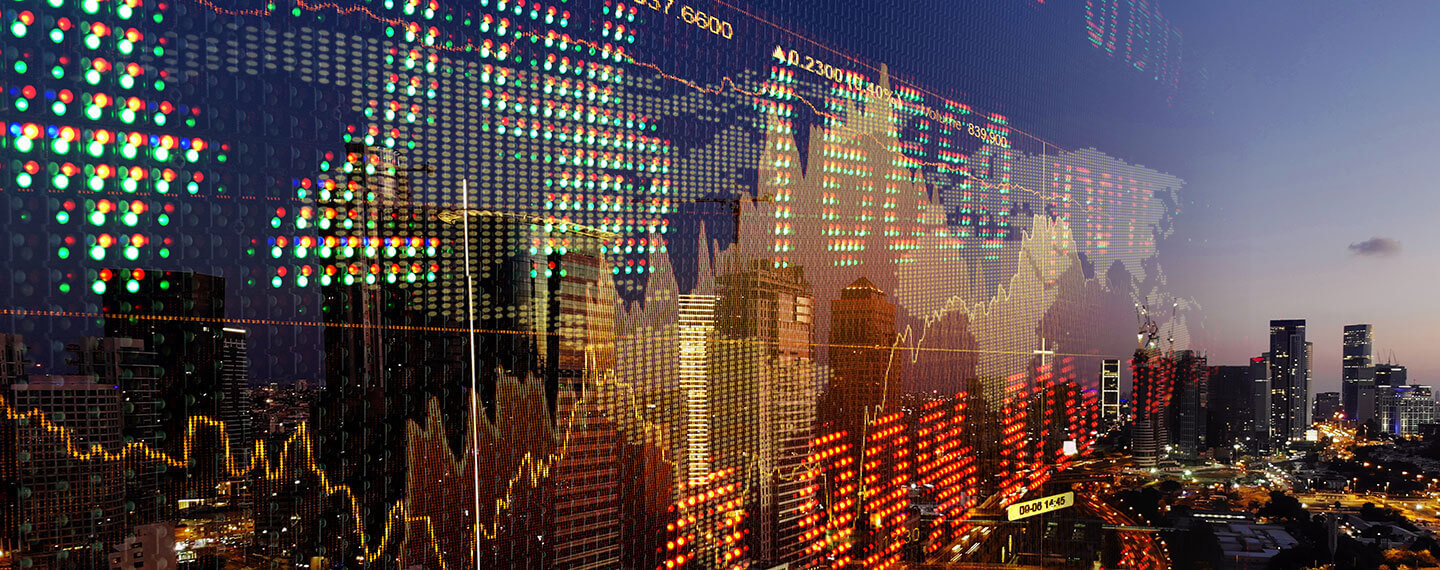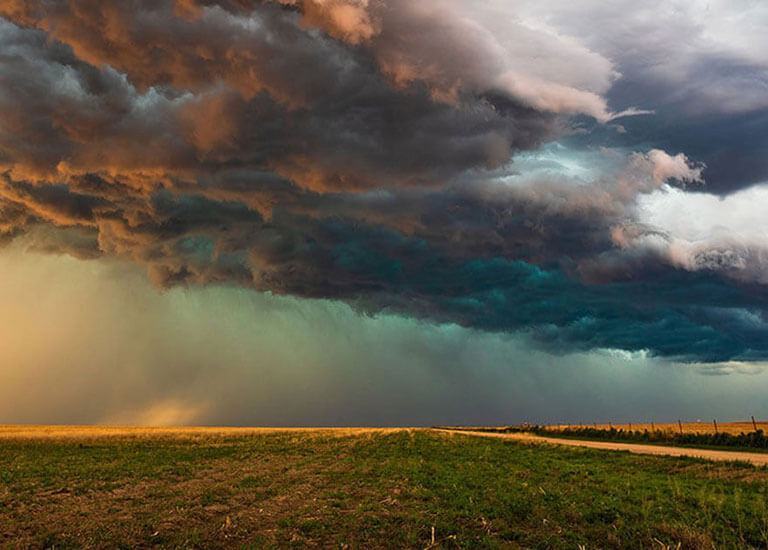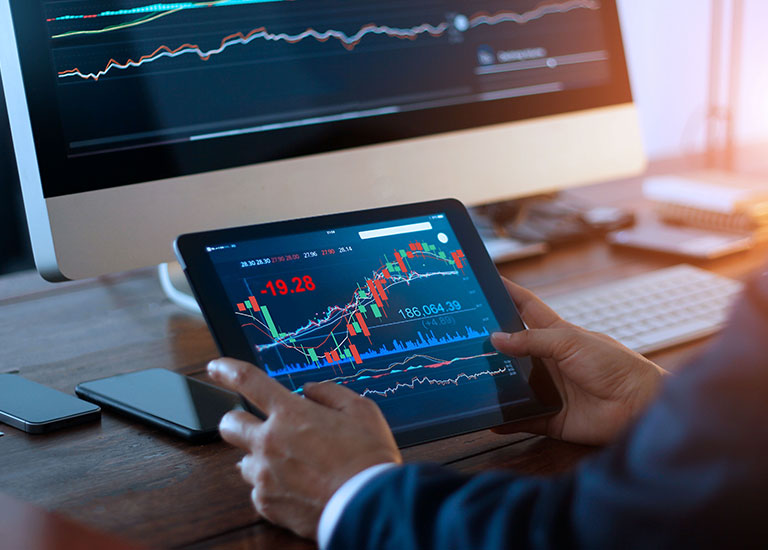So far, it’s been a tumultuous year marked by stubbornly high inflation, aggressive central bank tightening, a deepening energy crisis in Europe, and growing fears of recession. As we enter the final months of the year, we sit down with Goodbody Chief Economist Dermot O’Leary to look at some of the big issues shaping the global economy.
The inflation horizon
1. Where is inflation headed?
Last year, much of the debate centred on whether inflation was going to be transitory or more permanent as a risk to the global economy and to financial markets. This year, that debate has shifted. Of course, there are transitory factors that are still influencing inflation, but the story of 2022 has been the realisation by key policymakers around the world that inflation is a problem, and that monetary policymakers need to do something about it.
Let’s examine the US, if you
strip out energy and transitory factors, the US core inflation number is over
6%. What are the drivers of core inflation, and what can monetary policymakers influence?
The answer is the labour market and wages, in particular. In the US economy,
wage growth is over 6%. It’s higher for workers that are moving, and they have
the scope to move because the labour market is still very hot. What’s more, the
unemployment rate is back at pre-pandemic lows. So, there are a lot of
vacancies and a lot of opportunities for workers to take advantage of this wage
growth. Why is that a problem for central bankers? Well, they want to hit an
overall inflation target of between 2 and 2.5% and they are obviously well
above that.
So, the debate about whether
inflation is transitory is over – about two-thirds of the items in a consumer
price inflation basket are rising at more than 4%. So, inflation has broadened
– and that’s really the story of 2022.
The other part of the story
this year is the reaction to the more concerning inflation – and reflecting on
history. It’s worth noting that headline inflation rates in major developed
economies are about 9-10% - and about two-thirds of that is due to the bad
stuff (i.e., on the energy side). Cyclical inflation is still running well
above where it’s meant to be – in other words, demand is too strong relative to
supply and we’re starting from a high base because central banks were slow to
react in the first place. In a way, central banks have been in catch up mode
this year.
If you look at the lessons
from former Federal Reserve (Fed) chair Paul Volcker in the late 1970s, it
tells us that if you don’t react fairly quickly – which is what they should
have done in the early-mid 1970s – then you’ll have a period of entrenched high
inflation. In turn, this means there’ll be a period of very high real interest
rates which crimps investment and leads to a high unemployment situation for a
number of years. Even though central banks in 2021/2022, particularly the Fed,
were late to react, they were not as late as the policymakers in the 1970s.
2. How big a role is fiscal policy playing?
It’s played a big role in the
US economy. If you think about the fiscal packages that were implemented during
Covid periods, by far, the US economy was the most aggressive. Remember, there
was going to be another fiscal package in the US, but luckily enough it didn’t get
through Congress because the inflation problem would be even bigger.
In a way, some of the issues
that have to do with the economic rebound stem from the success fiscal
policymakers had in terms of making sure there was no scarring or permanent
damage to the economy after Covid. So, it’s rowing back on that which is easier
for independent central bankers to do rather than politicians that are
answerable to their electorate. That’s the tug-of-war that we’re going to see.
3. A strong dollar: what does it mean for the evolving euro area outlook?
The dollar strength is a function of the Fed raising interest rates quite aggressively – and it shows how interconnected the global economy is. Actions in one part of the world, particularly the world’s biggest economy, will have global implications.
How does it impact the euro area? It is one of the inputs into the inflation rate. But the US is not the euro area’s biggest trading partner. So, while people tend to focus on the euro-dollar exchange rate, a more important one to watch is the trade-weighted euro which has fallen as well, albeit not to the same extent.
When you look at currencies,
there have been two big influences this year: the rate differential story
(i.e., the US raising rates faster than other countries) and the current
account position. In the euro area, the current account position has gone from
a surplus to a very significant deficit – and the biggest driver of that is
energy. How does the market react to
going into a deficit? The currency depreciates.
Growth outlook and a potential recession
4. What is your outlook for the global economy, and is a recession imminent?
It’s going to be difficult for
the developed economies to avoid recession. Starting with China, it has self-inflicted
wounds because of its zero-Covid policy. In addition, it is facing the
challenge of a liquidity trap in the property market. In the US, the Fed must
raise interest rates sufficiently to bring wage inflation down – and that
usually causes an increase in the unemployment rate. Looking at the post-war
period, any time there’s been an increase in the unemployment rate by more than
0.5%, there’s been a recession in the US.
Meanwhile, in Europe (including the euro area and the UK), the war in Ukraine and the energy issues that are associated with it are very difficult to predict – and the weather will determine how severe an impending recession may be. That’s because the weather in terms of generating wind energy and solar energy – which will have to replace some of the fossil fuel energy that would have been used in the past – will determine the level of cuts in energy use that will be required by industries, in particular some heavy industries in Germany.
So, when you look at those
drivers, it’s going to be difficult to avoid recession in the short term.
A tale of two budgets
5. What are your views on the
recent “mini” budget in the UK and the Irish budget?
The week that followed the UK chancellor Kwasi Kwarteng’s “mini” budget – in relation to both UK policy developments and financial market developments – was extraordinary. It serves as a lesson that markets pay attention to whether policies are credible, well-funded, affordable, and sustainable. And in all those respects, there were big question marks about the proposed tax cuts and extensive borrowing plans, which had no independent scrutiny as is usually the case. The Bank of England intervened last week to soothe the turmoil, and earlier this week, Kwarteng was forced into a U-turn over planned tax cuts for the UK’s higher earnings and he has also brought forward the publication date of his plan to cut debt to later this month (compared to the original publication of 23 November). It remains to be seen whether this U-turn will be enough to reassure markets that the UK public finances are on the right track and whether the Bank of England will have to raise interest rates more aggressively due to the size of the fiscal package.
Conversely, Ireland’s budget
was totally different to the UK experience. It struck a balance between
economic need and sensible policy. There were a lot of resources available to Paschal
Donohoe and Michael McGrath because of the excess corporate tax revenues. The
Irish government also announced that it would reinstate the National Reserve
Fund, which is essentially a rainy-day fund that will be funded by some of
those excess corporate tax monies. I think that’s a good thing. The government
kept some of its powder dry, while also concentrating on some of the issues
that businesses and households are going to face over the winter period with
regard to energy.
Dermot O’Leary, Goodbody Chief Economist, presented his investment outlook at our annual Investor Summit on 29 September. Watch Dermot in conversation with Global Strategic Advisor Joe Prendergast at the Goodbody Investor Summit 2022 here.
This is a marketing communication.








